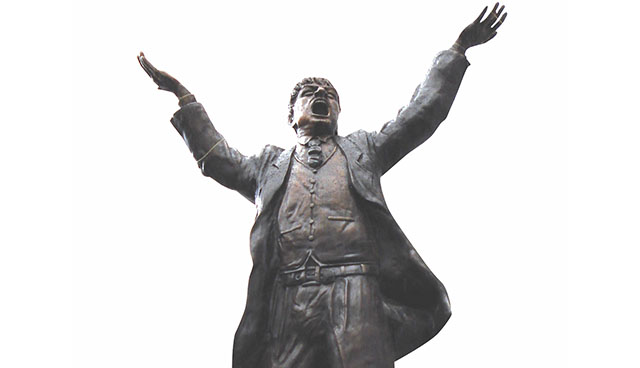TRADE UNION DESK: Combatting the cheapening of our daily lives

The accurate cliché about tech platforms and their ‘interaction’ with their captive audiences of ‘users’ and advertisers is that ‘if it is free, then you are the product’, writes John O’Farrell of the ICTU.
That relationship has developed and/or degenerated into a new phrase, ‘enshittification’, devised by the US tech writer Cory Doctorow. “First, they are good to their users; then they abuse their users to make things better for their business customers; finally, they abuse those business customers to claw back all the value for themselves.”
The process for online services is now well established, wrote The Observer’s John Naughton: “Rule one for any online venture is to acquire large numbers of users quickly so that you can harness the power of network effects to keep them inside your walled garden. You do this by offering ‘free’ services (Google, Facebook, Twitter, YouTube, Instagram), or loss-making reduced prices (Amazon). Rule two: Once you have got them locked in, you turn them into a captive market for your real customers – advertisers and vendors. And once you have got them locked in then (rule three) you are in a seller’s market – and have a licence to print money.”
Annoying as all of this is, it is nothing new. The marketisation of services since the early 1980s has added significant costs to the business of running a family or enjoying the fruits of the free market.
This is so engrained into the lives of people living in the UK and Ireland that it is astonishing to find how much was previously provided cheaply or free from the State, and still is in many, more successful, European countries.
Take childcare; for most young families, the costs are so high that many qualified workers, (usually women; surprise, surprise) have to make choices between paying or stalling their career progression (which has implications for future earnings, pensions etc). The other side is that those caring for children (or older people) are among the worst paid workers around. These slaps from the invisible hand of the free market are not the natural order, but the consequences of active policy choices.
Among the casualties of the austerity drive a decade ago were Gordon Brown’s innovations to reward having kids: “Sure Start centres, free nursery education, childcare tax credits and a child trust fund endowing every new-born. Schools were rebuilt, education maintenance grants helped keep poor children in the sixth form, and wraparound breakfast and tea clubs in many schools made life easier for working parents.”
What remains of those locally are being shuttered by choices being made at the NIO by Chris Heaton-Harris MP with 10 per cent cuts in services for children at the Department of Education.
Or housing; 44,000 households in Northern Ireland are on the waiting list for social housing. For those renting privately in Belfast, average rent hit £845 per month at the end of September 2022. Prior to the pandemic, in September 2019, the figure was £700. That is a rise of 21 per cent.
In contrast, the Austrian capital Vienna has a successful programme of social homes and a regulated private sector which provides high quality social housing for most ordinary working families. In addition, they have access to cheap and efficient public transport, quality subsidised childcare and the city regularly tops indexes of quality of life for city living.
Take transport, take water quality, take leisure services provided by local government, take the value of a university degree, take the feeling of security people being protected from dark streets, from internet predators, from precarious working conditions, and other obstacles to The Good Life, and the process of ‘enshittification’ is not new, but a continuation by various means of cheapening and coarsening our daily lives. But there is another way of looking at this.
We need a discussion on the ‘social wage’. A recent ICTU report concentrated on the Republic, but its ideas can be easily translated across the border. “The social wage is a measure of how much better off individuals are from social spending by government on welfare supports and services… Using international comparative survey data, the report looks across welfare spending such as housing and childcare. It demonstrates the social wage for workers in Ireland is exceptionally low by EU standards.”
The run of strikes we are having in every sector, including some unions voting for their first ever picket line, is the culmination of this process. Debt problems are not the solution for individuals and families to deal with their wages and work being degraded and devalued. Collective action gets results, from unions working together and from governments and social partners doing what is done successfully in EU states. We can even coin the phrase ‘deshittification’ if that helps.





